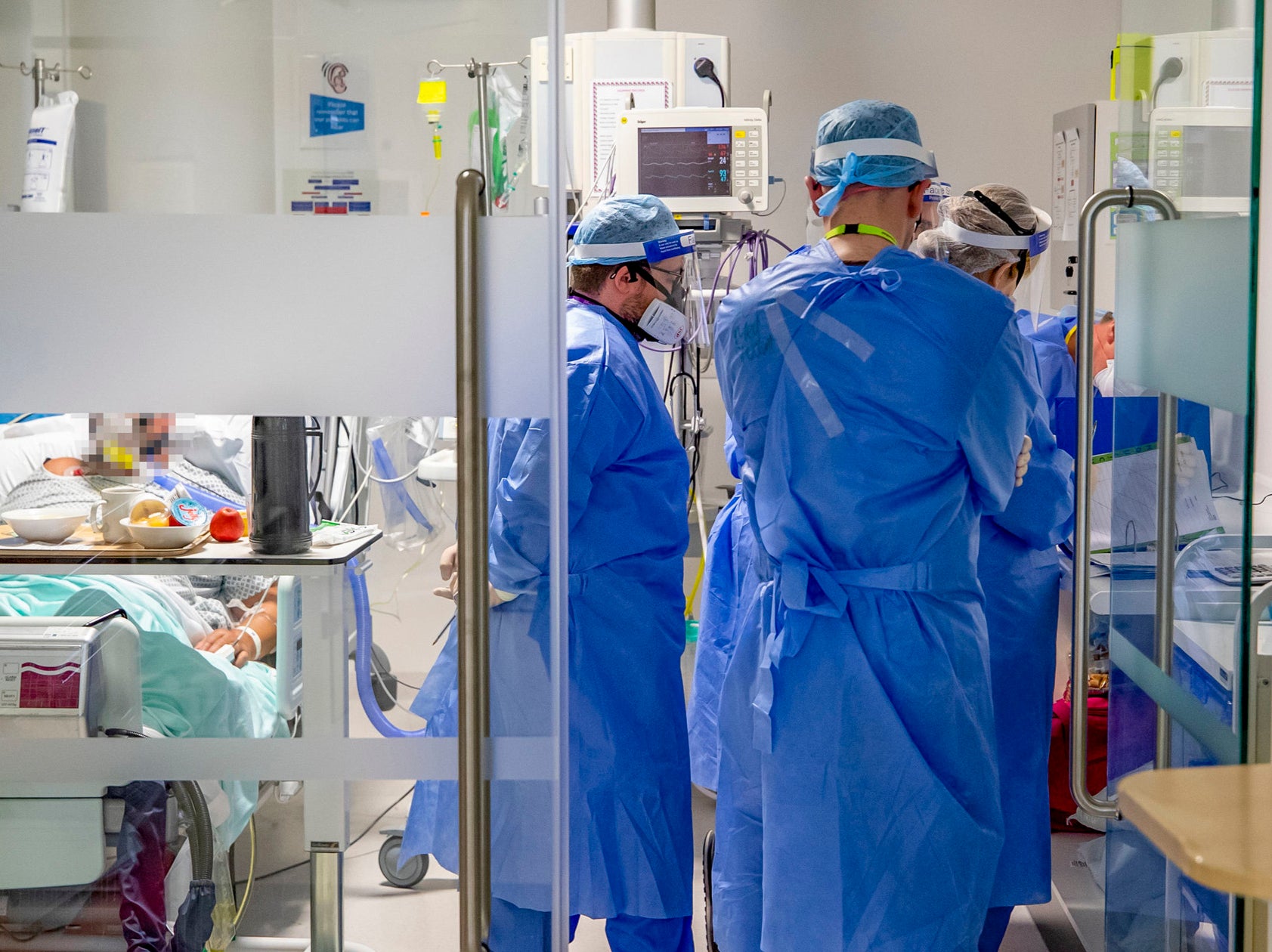Number of people on NHS waiting lists hits 12-year high
‘There are now tens of thousands of patients waiting for surgery, many in pain and unable to get on with day-to-day life’

Your support helps us to tell the story
From reproductive rights to climate change to Big Tech, The Independent is on the ground when the story is developing. Whether it's investigating the financials of Elon Musk's pro-Trump PAC or producing our latest documentary, 'The A Word', which shines a light on the American women fighting for reproductive rights, we know how important it is to parse out the facts from the messaging.
At such a critical moment in US history, we need reporters on the ground. Your donation allows us to keep sending journalists to speak to both sides of the story.
The Independent is trusted by Americans across the entire political spectrum. And unlike many other quality news outlets, we choose not to lock Americans out of our reporting and analysis with paywalls. We believe quality journalism should be available to everyone, paid for by those who can afford it.
Your support makes all the difference.At least 162,000 patients are waiting more than a year for routine NHS operations, the highest number for more than 12 years.
The latest statistics from NHS England show that 162,888 people had been waiting more than 52 weeks for hospital treatment in October this year, the highest number since May 2008.
The total NHS waiting list for routine treatments reached 4.4 million at the end of October, with more than a third of patients waiting more than 18 weeks – the NHS target for waiting times, from referral to treatment.
Earlier this year, health think tanks had predicted that the waiting list could hit 10 million, but NHS England said this had not come to pass because of the work of hospitals and NHS staff to keep waiting lists lower than they were last year.
The median waiting time was just over 11 weeks, NHS England said.
GPs made a total of 203,704 urgent cancer referrals in England during October, eight per cent down from a year before.
This compares with a year-on-year rise of 2 per cent in September and falls of 15 per cent in August and 19 per cent in July.
The NHS has launched a nationwide campaign to encourage patients to seek health advice if they have unexplained symptoms that could be cancer.
Urgent referrals for breast cancer symptoms were down from 16,232 in October 2019 to 12,148 in October 2020, a fall of 25 per cent.
More than 362,000 patients in England had been waiting more than six weeks in October for one of 15 key diagnostic tests, such as MRIs and CT scans.
This compares with just 33,200 waiting for tests in October 2019.
The latest data is an improvement from May when 571,500 were waiting.
Some experts have warned of hidden demand on NHS surgeries, with many patients yet to be referred for treatment because of the covid pandemic.
A spokesperson for NHS England, said: “Although Covid hospitalisations almost doubled during November, for every Covid inpatient the NHS treated, hospitals managed to treat five other inpatients for other health conditions. With cancer referrals and treatments now back above usual levels, our message remains that people should continue to come forward for care when they need it.”
Neil Mortensen, president of the Royal College of Surgeons of England, said: “Yet again, these waiting time figures drive home the devastating impact Covid has had on wider NHS services. Waiting lists for planned treatment were already heaving when the virus first struck. It has made the situation many times worse.
“Though we were able to recover some ground over the summer, October’s figures show that as the second wave of the pandemic began to build, so too did the pressures on planned surgery. Tragically, there are now tens of thousands of patients waiting for surgery, many in pain and unable to get on with day-to-day life.”
He added that even with a vaccine against coronavirus, “it will still be many months before all staff and patients are vaccinated. In the meantime, the NHS faces an incredibly challenging winter. To right the ship after the devastation of the pandemic, the NHS needs a new deal from government, with extra investment in hospital beds and staff.”
Join our commenting forum
Join thought-provoking conversations, follow other Independent readers and see their replies
Comments